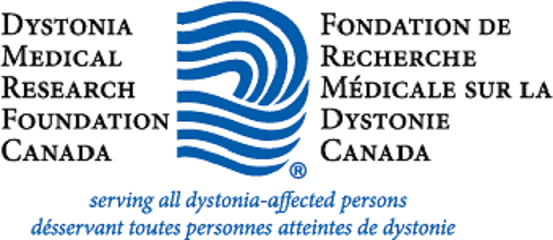DMRF Canada is thrilled to announce support of the research project: “Mechanisms of Action of DBS for Dystonia: Cholinergic Contributions to Plasticity.” By Drs. Zelma Kiss and Davide Martino at Departments of Clinical Neurosciences, Hotchkiss Brain Institute, University of Calgary. DMRF Canada has committed to fund this grant, valued at $50,000 as one of two ‘Better Clinical Treatment Grants’ supported this year.
This project will strive to understand how Deep Brain Stimulation (DBS) works in dystonia, to set the stage to improve stimulation with future closed loop control and/or in combination with other therapies to improve patients’ quality of life.
“DMRF Canada is thrilled to be able to support this exciting research project, that strongly aligns with our goal to make life better for dystonia patients in the near term, while continuing our mission to find a cure. And we’re incredibly proud to be able to support this type of research here in Canada.” said DMRF Canada Executive Director, Stefanie Ince.
Dr Kiss and her research team theorize that subjects with specific oscillation patterns in their basal ganglia, evidence of motor cortical plasticity and higher cholinergic tone will have more improvement in their dystonic features than people with fewer of these features. This is a pilot study exploring potential physiological biomarkers of response. Determining the oscillation patterns occurring during dystonic movements could provide the signal for closed loop control of DBS, similar to what has been accomplished in Parkinson’s disease.
Dr. Kiss stated that “she is deeply appreciative to DMRF Canada and looks forward to extending her collaborations with Dr. Martino in dystonia to develop a mechanistic understanding of DBS. We anticipate that knowledge of how DBS works could be harnessed to interact with other therapies such as physical or pharmaceutical approaches, in addition to providing insights into the pathophysiology of dystonia.”Funding was released to Dr. Kiss and her team in October 2019.
Click here to learn about Dr. Fasano's research; "MRI-based Programming Technolgy for Dystonia Patients with DBS".
